Newsletter Signup - Under Article / In Page
"*" indicates required fields
Geneva is the largest city in French-speaking Switzerland, a financial powerhouse, home to the United Nations and known as the “Peace Capital.” Can the city’s biotech industry justify its high profile?
Geneva rose to recognition as a biotech hub in 2006, when Serono sealed its acquisition by Merck in the city’s biggest-ever licensing plan. However, a late-stage failure forced the biotech to close down in 2012, inflicting what many feared would be irreparable damage to the local ecosystem. Since then, Geneva has been relegated a role as home to key health institutions, such as the Red Cross and the World Health Organization.
Along with these global big names, the city has attracted a lot of non-profit initiatives directly working in health research. Notable examples include FIND, which develops diagnostic tests for infectious diseases, Drugs for Neglected Diseases Initiative, and Medicines for Malaria Venture, which has succeeded in raising over $890M in funding.
Five years since the Serono debacle, Geneva is returning to a place of prominence in biotech. There’s no shortage of innovation birthplaces. The old Serono facility has been converted into Campus Biotech, and one of its tenants is the incubator Eclosion, which is related to some of the companies below, including Obseva and Genkyotex.
Quite a few spin-outs are coming out of the University of Geneva, but also from EPFL, taking advantage of the proximity of Lausanne. Like other Swiss cities we’ve already covered, Zurich and Basel, Geneva also benefits from a good combination of money, biotech and pharma veterans, as well as renowned academics — all of which have led to some notable IPOs and success stories. We went to find the best companies brewing here.
As usual, the list is in no particular order. Our thanks to Geneva’s insider who helped us put this list together.

Focused on reproductive health, ObsEva was founded in 2012. It was one of the first biotech IPOs in 2017, raising €90M, and it’s now valued at €220M on the NASDAQ. Before its IPO, it attracted big-time investors like Medicxi and Sofinnova Partners, some of the top European biotech investors.
The biotech has 3 different candidates at the clinical stage for a range of women’s health issues and reproductive health applications. Its leading program is an oral GnRH receptor antagonist just starting a Phase III trial for uterine fibroids.
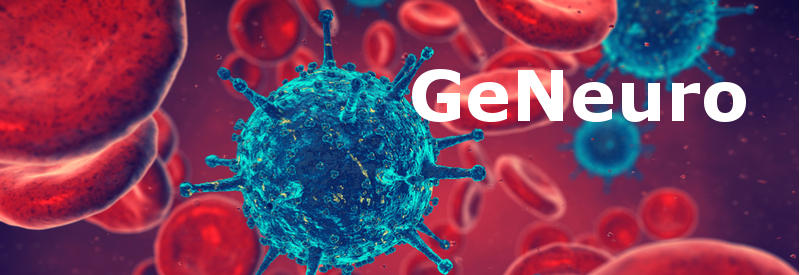
GeNeuro was founded in 2006 and is now listed on the Euronext Paris with a market cap of €152M. It has an innovative take to neurodegenerative and inflammatory diseases, which stems from 25 years of research on human endogenous retroviruses, many of which at the top institutions of the close-by city of Lyon, France.
We have interviewed GeNeuro’s CFO, Miguel Payro, about what makes its antibody therapies special. Among the targeted conditions are multiple sclerosis and type I diabetes, with the first being GeNeuro’s most advanced program with a Phase IIb trial.
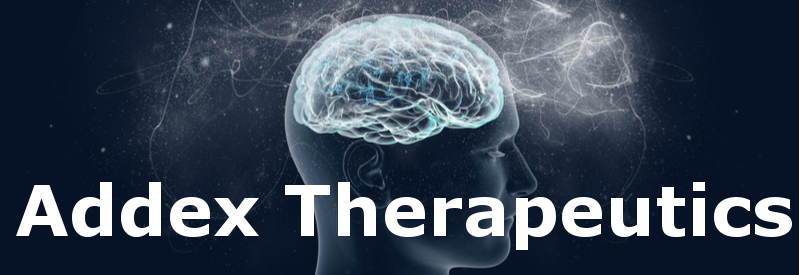
Addex Therapeutic’s 15-year-tenure as a biotech hasn’t been an easy one, as we went over before in a 2015 interview with its current CEO, Tim Dyer. The biotech’s platform of allosteric modulators to tackle neurological disorders raised €200M, but its promising ascension almost turned into bankruptcy.
The company now has a much more modest market cap of €29M on the Swiss Exchange, works in a mostly virtual biotech model and is carrying on clinical programs on Parkinson’s Disease and epilepsy with some high-profile partnerships, including Janssen and the Michael J. Fox Foundation.

Focused on Parkinson’s disease, Prexton Therapeutics was founded in 2012 and has been successful in attracting the interest of some of the key European investors in biotech, as its February financing round can attest. In total, the company has raised over €37M.
Prexton has an alternative approach to dopamine replacement, one of the current strategies for Parkinson’s, and tries instead to target the glutamatergic neuronal system. Its candidate, Foliglurax, is to start Phase II trials soon, and the company’s CEO, François Conquet explained its development to us at the SACHS conference last year.

Genkyotex was founded in 2006 and raised over €87M in private financing before going public in 2015 on the Euronext Paris. It now has a market cap in excess of €160M. Earlier this year, it also absorbed the long-struggling Genticel.
The company develops therapies based on the inhibition of NOX enzymes for several diseases and has known its ups and downs too, with a Phase II failure. Now, it’s targeting NASH with a Phase II trial in primary biliary cholangitis, along with another candidate in a Phase I trial for inflammatory pain.
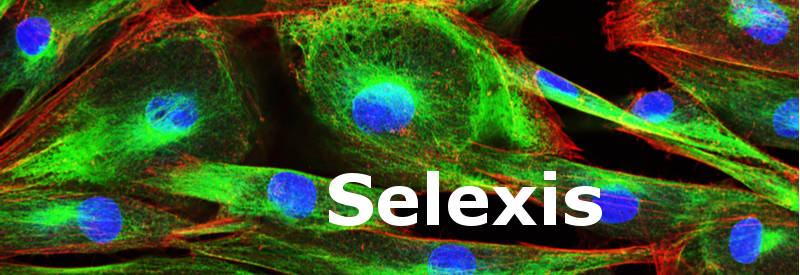
Focusing on mammalian research cell banks, Selexis was founded in 2001 and remains privately held. It provides services in drug discovery, development, and biopharmaceutical manufacturing to more than 95 partners, including companies like Baxter and Amgen.
Its expertise ranges from proprietary CHO cell lines, for high-performance manufacturing of recombinant proteins, to vectors for gene transfer and genome analysis. There are several therapies at the clinical stage developed with its SUREtechnology platform, with 2 already approved for marketing.
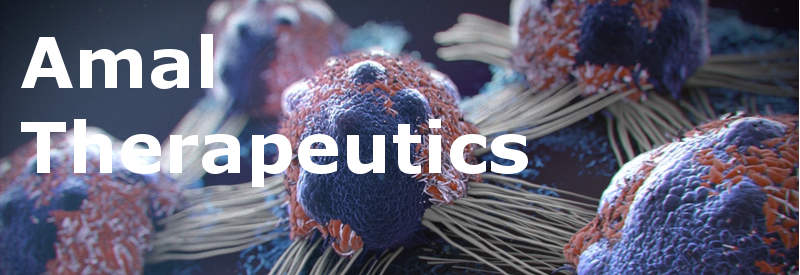
Developing cancer vaccines, Amal Therapeutics is a spin-off of the University of Geneva. It was incorporated in 2012 with seed money from High-Tech Gründerfonds and Boehringer Ingelheim Venture Fund, both from Germany. In 2016, it was named one of the top 10 innovative startups in Switzerland.
Amal Technologies relies on its platform to create cell penetrating peptides to create an immune response against tumors. It’s currently in the preclinical stage, with candidates for colorectal cancer and glioblastoma.
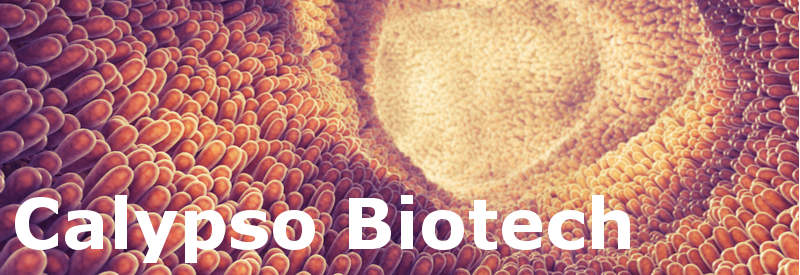
Calypso Biotech is a spin-off from Merck Serono, focused on severe gastrointestinal diseases. It was created in 2013, and we interviewed its CEO, Alain Vicari, back in 2015 about the company’s future strategy.
Its two candidates are still in preclinical development, closing in on authorizations for clinical trials for several conditions, including cancer, inflammatory bowel diseases and refractory celiac disease. The candidates target MMP-9 and IL-15, a peptidase and cytokine involved in several processes of inflammation and fibrosis.

Founded in 2013, MaxiVAX joins technology developed in Geneva University Hospital, University of Geneva and EPFL. It is financed by private investors together with grants, such as a €275k SAKK/RTFCCR/Gateway Research Grant and a €220k grant from the Swiss Cancer League.
MaxiVAX develops vaccines that are applicable to multiple types of cancer, relying on a specific immune booster. It successfully completed a Phase I trial with its leading candidate, which was well-tolerated by the 15 patients with a variety of solid tumors.

Novimmune has over 120 employees and raised over €200M during its nearly 20 years in operation. A spin-off of the University of Geneva, it’s now the most successful biotech in Geneva, even if it cannot quite yet compare to Actelion, Europe’s biotech superstar from neighboring Basel.
Its therapies are based on monoclonal and bispecific antibodies, for which Novimmune has developed technology platforms. In its pipeline are 4 clinical candidates, 2 of them partnered with Genentech. However, Novimmune is going solo on its leading program, the Phase II/III anti-IFNγ Emapalumab, which has potential for a range of inflammatory and autoimmune disorders.
Though it was dealt a blow by the Serono failure, Geneva has grown a lot to become home to many exciting companies working in therapeutic biotech. Cancer vaccines, inflammation and neurological disorders appear to be particularly strong areas. Besides leveraging the ecosystem we described in the beginning, Geneva’s companies seem to be well-connected to other European players like French academia or German investors.
Images from Samuel Borges Photography, sciencepics, Javier Regueiro, Vshivkova, Andrii Vodolazhskyi, nobeastsofierce and Milosz_G (Shutterstock)






